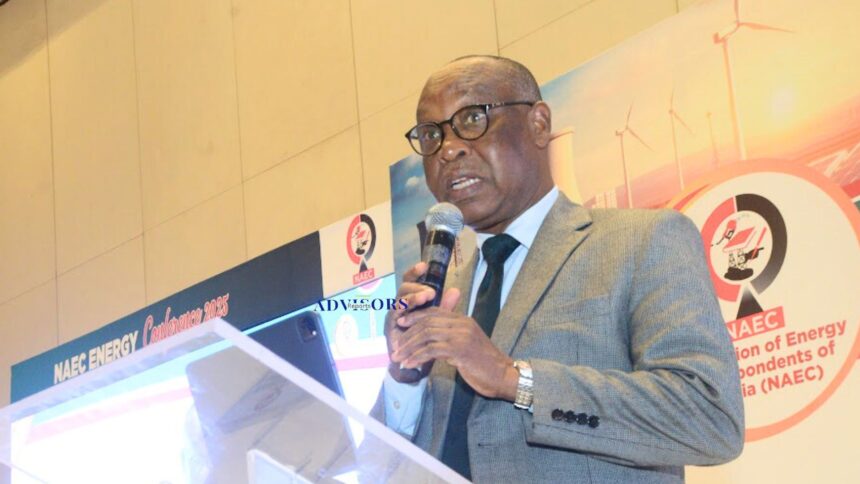…says ₦1.5 trn unremitted revenues by oil firms, agencies could boost energy, education, healthcare, sectors
Oredola Adeola
The Nigeria Extractive Industries Transparency Initiative (NEITI) has called for stronger collaboration with energy correspondents and editors to keep vigilance and track issues of poor accountability, broken trust, institutional weaknesses, and trillions of naira in unremitted revenues owed to the Federation by companies and government agencies.
NEITI stated that its collaboration with NAEC will help ensure the facts in its reports are transformed into public awareness, civic engagement, and policy reforms rather than left buried in archives.
Dr. Orji Ogbonnaya Orji, Executive Secretary of NEITI, made this known in his remarks at the 2025 Energy Conference of the Association of Energy Correspondents of Nigeria (NAEC), held on Thursday in Lagos.
According to him, the funds, if recovered, could play a vital role in boosting energy infrastructure, education, and healthcare.
Speaking on the theme of the conference, “Nigeria’s Energy Future: Exploring Opportunities and Addressing Risks for Sustainable Growth,” Dr. Orji emphasized that transparency is not merely a bureaucratic exercise but an economic necessity that attracts investment, technology, and partnerships.
He noted that NEITI’s 2021–2022 Oil and Gas Industry Reports showed Nigeria earned $23.04 billion in 2021 and $23.05 billion in 2022 from the sector.
“However, the reports also revealed outstanding remittances of ₦1.5 trillion owed to the Federation by some companies and government agencies — funds that, if recovered, could significantly support critical sectors like energy, education, and healthcare,” he said.
Dr. Orji further disclosed that the findings exposed the severe cost of poor accountability, with Nigeria losing 13.5 million barrels of crude oil valued at $3.3 billion to theft and sabotage in 2022 alone — an amount equivalent to the federal health budget for a year or the cost of providing energy access to millions of households.
“These losses are not just economic; they reflect broken trust, institutional weaknesses, and missed opportunities for national progress. This is precisely why transparency and accountability are not optional — they are existential,” the NEITI Executive Secretary stated.
He further stated that Nigeria’s path to a sustainable energy future depends on three interconnected values — Transparency, Accountability, and Sustainability.
According to him, NEITI remains firmly committed to ensuring that every barrel of oil produced, every cubic foot of gas commercialised, and every kobo earned contributes directly to national development — all in full public view.
Dr. Orji emphasized that the agency counts on the vigilance of energy editors to keep transparency and accountability at the heart of national conversations.
“We rely on your vigilance to ensure that the facts in our reports are not buried in archives but transformed into public awareness, civic action, and policy reform,” he said. “As a strategic partner, NAEC’s role is indispensable.
“When journalists report with depth, integrity, and factual accuracy, they become the bridge between data and democracy,”he said.
The NEITI boss further added that as Nigeria advances its gas transition agenda and embraces renewable energy as the future, governance systems must evolve in tandem with innovation.
“Our energy future must be built on verifiable data, open contracts, measurable emissions, and accountable institutions,” the ES noted.
Dr. Orji emphasised that NEITI envisions an extractive sector where every dollar is traceable, every contract is public, every decision is transparent, and every Nigerian can clearly see how the nation’s natural resources translate into shared prosperity.




